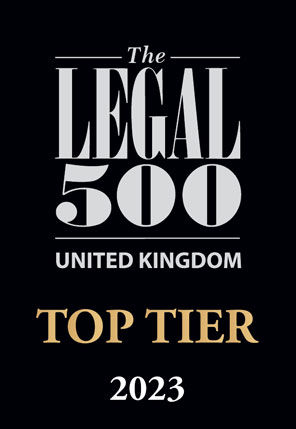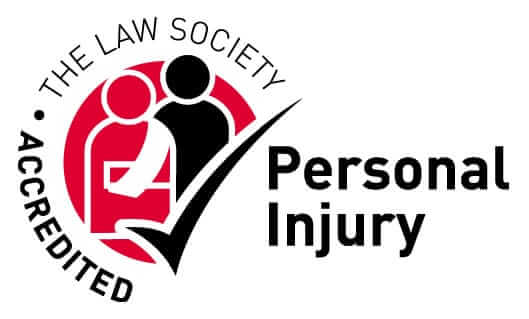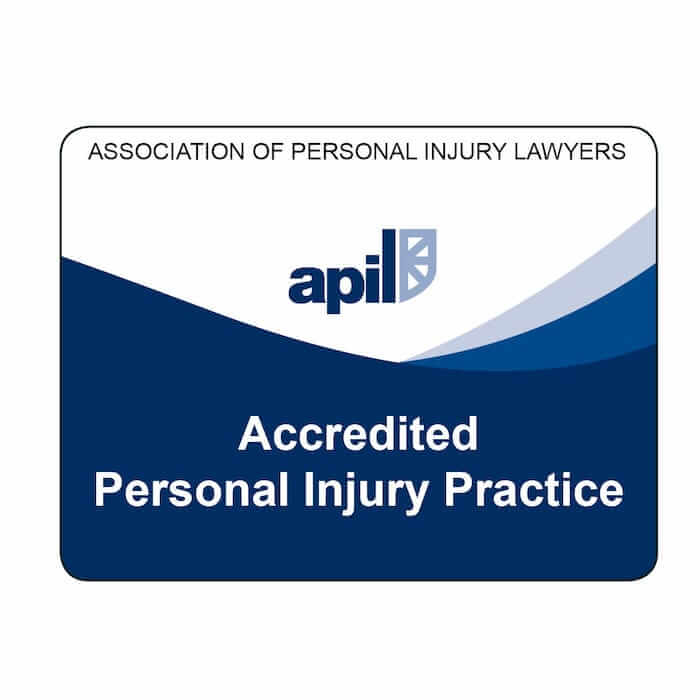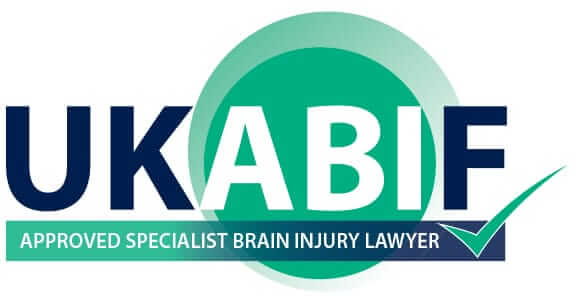 Personal Injury
Personal Injury Faulty Product Compensation Claims
Product Liability is the legal liability a manufacturer, supplier, distributor or retailer incurs for producing or selling a faulty product.
When determining for the purposes of what a person is generally entitled to expect, all the circumstances shall be taken into account, including: the manner in which and the purposes for which the product has been marketed; the use of any mark in relation to the product and any instructions for, or warnings with respect to, doing or refraining from doing anything with or in relation to the product; what might reasonably be expected to be done with or in relation to the product and the time when the product was supplied by its producer to another.
Consumers affected by a faulty product can also bring a claim of breach of contract against the supplier, distributor or retailer of the product under the Consumer Rights Act 2015.
we can help.
0330 822 3451Types of product liability claims
Some examples of product liability claims include:
- Injuries caused by vaccines
- Injuries caused by defective medical devices
- Injuries caused by medication
- Injuries caused by defective medical implants
- Injuries caused by contaminated medical products
- Accidents or injuries caused by a defective vehicle
- Injuries caused by a defective piece of equipment or appliance
- Injuries caused by defective pharmaceutical drugs
"I AM SO GRATEFUL FOR FINDING HJA...ESPECIALLY PETER TODD AND HIS TEAM...THEY ASSISTED ME THROUGH A VERY HARD TIME...AND GOT ME A BETTER RESULT THAN I EVER EXPECTED."
How to make a product liability claim and what you need to prove
In order to succeed with a claim under the Consumer Protection Act 1987, you will need to prove that:
- The product was defective
- You were injured and/or suffered a loss
- There is a causal link between the defective product and the injury and/or the loss and
- You were using the product as it was intended
In cases where a personal injury has been caused by a potentially faulty product, it may possible to bring a claim for compensation against the manufacturer, suppliers, distributors or retailers of the product under the Consumer Protection Act 1987. Under this Act, a product is defective if the safety of the product is not such as persons generally are entitled to expect.
Limitation periods to bring a claim
For adults and those with mental capacity, Court proceedings must be issued within 3 years of the date of injury/damage or, if later, three years from the date of knowledge (when you found out that the injury sustained was caused by a defective product), or the right to claim is extinguished.
The Limitation Act 1980 also introduces a 10 year longstop rule which requires that Court proceedings for claims for personal injury caused by a defective product, brought under the Consumer Protection Act 1987, must be issued within 10 years from the date that the product was put into market circulation.
What can I claim for?
Personal injury compensation is assessed by two types of compensation:
- General damages
Is compensation for the pain, suffering and loss of amenity you have suffered as a result of the faulty product. We will collate the medical and supporting evidence to prove this part of your claim.
- Special damages
Is the compensation for the past and future financial losses such as loss of earnings, travel expenses, medical expenses and care and assistance you require as a result of the injury.
Funding product liability claims
At Hodge, Jones & Allen, we can operate on a ‘No Win No Fee’ basis for a product liability claim. This means that you won’t have to pay our fees up front, After the Event Insurance (ATE) will cover you for any adverse costs, in the event your claim is unsuccessful. This type of insurance policy will step in to protect you against your opponent’s costs and our disbursements required for the case, in the event you lose your claim.
Alternatively, you may have Legal Expenses Insurance (LEI) attached to your insurance policy with your motor, home or travel insurance which you can use to fund a claim.
To see how much compensation you may be able to claim for your injury, please use our personal injury compensation calculator.
What are benefits of Group Action Claims?
Product liability claims can be very expensive to run and in some cases bringing claims individually would not be a practical as the costs likely to be incurred would exceed the potential damages sought. When a group of people are affected by the same issue, it is becoming more and more common to bring the claims collectively as part of a group action, also known as a multi-party action.
There are many advantages for an individual to join a group action. By acting as one large group, the risks and costs associated with the litigation is spread out between all the Claimants and their legal representatives. Knowledge and expertise between the legal representatives can also be shared.
Working collectively in a group action also means there is strength in numbers. There can be hundreds and even thousands affected by the same issue. It can be comforting for individuals to be amongst others who have also been affected by the same issue. It also creates a level playing field when litigating against a large corporation.
Within a group action, compensation for each claimant is dealt with on a case by case basis. Some individuals may have a modest claim which may not justify the legal fees which are likely to be incurred. However, by being part of the group action, it enables those who may have a smaller claim to also claim the compensation they deserve.
Pandemrix – 2009-2010 swine flu vaccine
One of the largest multi-party product liability claims against GlaxoSmithKline for serious neurological injury (narcolepsy) caused by the 2009-10 pandemic swine flu vaccine.
Occulentis
Another major group action for those affected by the implant of a defective intraocular lens. Over 90 individuals were represented with Hodge Jones & Allen robustly defending their right to damages.
Featured case
Background to pandemic swine flu vaccine Claims causing narcolepsy/cataplexy
Settlement achieved
In 2020, settlements were achieved for those affected by the Pandemrix vaccine. This was one of the largest product liability claims since Thalidomide. The clients suffered narcolepsy – a serious neurological disorder.
The background to the claim
In 2009 there was a global pandemic of swine flu. There were fears that the pandemic might be serious. In the UK the government commissioned GSK to manufacture a vaccine to immunise the population against the pandemic. The vaccine was known as “Pandemrix”.
GSK had previously created a pandemic vaccine against bird flu (H5N1). GSK adapted that vaccine for use in the swine flu (H1N1) pandemic. The vaccine contained an adjuvant (to stimulate the immune response) which meant that 4 times as many doses of vaccine could be produced with the same amount of antigenic material.
Pre-market clinical testing of the vaccine (especially in children) was extremely limited (or non-existent). GSK obtained an indemnity from the UK government as part of the supply contract so that in the event that it faced claims as a result of adverse reactions to the vaccine, then it could obtain reimbursement for any outlay from the UK government.
The vaccination campaign started in October 2009 and initially focussed on “at risk” groups (such as asthmatics) and healthcare workers.
In the end, it transpired that the swine flu virus was no more virulent than the annual seasonal strains of flu. Pandemrix was used in Ireland, Sweden, Finland and many other European countries as well as the UK.
By the summer of 2010, there were reports of unusual numbers of children being diagnosed with narcolepsy and a connection was made that they had all received Pandemrix. The pandemic swine flu vaccine campaign was stopped in the UK August 2010, and by that time the pandemic was also largely considered to be over.
Epidemiological studies were subsequently carried out around the world. These have shown that there is a significantly increased risk (particularly in children) between Pandemrix vaccine and narcolepsy.
In February 2013 the UK Health Protection Agency published a press release which accepted that a study published in the British Medical Journal had established a link between Pandemrix and narcolepsy in children.
In September 2013 the Secretary of State for the Department of Work and Pensions reversed his earlier adjudication that Pandemrix did not cause narcolepsy, thereby confirming that the UK government accepted that there was a link.
Can I make a personal injury claim if I have signed a waiver?
Although a waiver is legal, it can be misleading. An organiser or business owner cannot exclude or restrict liability for personal injury or death caused by negligence. This is set out in the Unfair Contract Terms Act 1977. Businesses and suppliers of products must comply with the various sections of this Act.
I’m not sure if the company that sold me the product is in fact the manufacturer of the product, can I still claim?
A specialist solicitor will investigate to try and find out who the manufacturer of the product is.
If they are unable to do so, you may still be able to claim against the company you purchased the product from if their business’s name is on the product, the business repairs, refurbishes or changes a product and if they cannot the product’s manufacturer, or the manufacturer has gone out of business.
You could also bring a claim of breach of contract against the company that sold you the product under the Consumer Rights Act 2015.




















